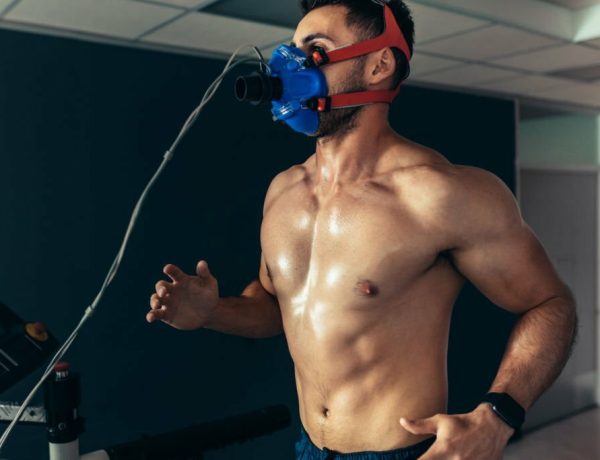The world of sports is rapidly evolving, and the latest frontier is not physical prowess but mental fitness. Athletes across various disciplines recognize the importance of psychological strength, resilience, and focus. This article delves into why mental fitness is becoming the new secret weapon in sports, highlighting its critical role in enhancing performance, preventing burnout, and sustaining long-term success.
The Evolution of Sports Psychology
Sports psychology has been around for decades, but its significance has grown exponentially in recent years. In the 1970s, Dr. Bruce Ogilvie, often referred to as the father of North American applied sports psychology, began working with athletes to improve their mental toughness. His pioneering efforts laid the groundwork for the integration of psychological training in sports.
Today, sports psychologists like Dr. Michael Gervais, who has worked with elite athletes such as the Seattle Seahawks and Olympians, emphasize the power of mental conditioning. Techniques such as visualization, mindfulness, and cognitive restructuring are now commonplace in the training regimens of top athletes.
Mental Fitness and Athletic Performance
Mental fitness is crucial for maintaining focus and concentration during high-pressure situations. Research by the American Psychological Association (APA) indicates that athletes who engage in regular mindfulness practices show improved attention and reduced anxiety, leading to better performance.
Resilience is another key component of mental fitness. A study published in the Journal of Sports Sciences found that athletes with higher resilience scores are better equipped to handle setbacks and maintain consistent performance levels. This is particularly important in sports where the margin of error is minimal.
Case Studies: Mental Fitness in Action
Olympic swimmer Michael Phelps, who has won 23 gold medals, attributes much of his success to mental fitness. Phelps has spoken openly about his struggles with mental health and how working with sports psychologist Dr. Pete Carroll helped him develop techniques to manage stress and stay focused.
Tennis champion Serena Williams uses mental conditioning to stay at the top of her game. Williams practices visualization and mindfulness, which she credits for helping her stay calm and focused during matches, even in the most high-stakes situations.
The Role of Mental Fitness in Team Sports
In team sports, mental fitness is crucial for building cohesion and maintaining morale. Teams that invest in group psychological training sessions, such as the All-Blacks rugby team from New Zealand, often see improved communication and trust among players.
Mental fitness also plays a role in enhancing leadership skills. Leaders who are mentally fit can better handle the pressures of guiding a team, making strategic decisions, and motivating their teammates.
Mental Fitness and Injury Recovery

Photo by on Pexels
Mental fitness can significantly impact the recovery process for injured athletes. Studies have shown that athletes who engage in psychological interventions, such as goal setting and positive self-talk, recover more quickly and experience less anxiety during rehabilitation.
Psychological resilience also helps prevent re-injury. Athletes who develop mental toughness are better equipped to cope with the fear of re-injury, which can otherwise hinder their return to peak performance.
Players like the late great Kobe Bryant had legendary mental strength, which he used to overcome tough situations throughout his career. This included finishing a game with a torn labrum and shooting the rest of the game with his left hand. This “Mamba Mentality” helped him come back even stronger after a devastating torn Achilles’ injury. The ESPN bonus code celebrates Kobe’s legacy, with players like Kyrie Irving and Jayson Tatum battling it out in the NBA Finals.
The Business of Mental Fitness
The demand for sports psychologists is growing, with many teams and individual athletes now employing full-time mental coaches. According to the Bureau of Labor Statistics, the median annual wage for psychologists, including sports psychologists, was $80,370 in 2020.
Teams are also making significant financial investments in mental fitness programs. For instance, the NBA’s Golden State Warriors have invested in comprehensive mental health services for their players, recognizing the long-term benefits of mental fitness on performance and well-being.
Educational Initiatives
Educational initiatives are crucial for integrating mental fitness into standard training programs. Institutions like the IMG Academy offer comprehensive programs that include mental conditioning as a core component of their athletic training.
Raising awareness about the importance of mental fitness is essential. Campaigns such as the NFL’s “My Cause My Cleats” allow players to highlight mental health causes, promoting broader awareness and acceptance of mental fitness in sports.
The Future of Mental Fitness in Sports
Technological innovations are set to play a significant role in the future of mental fitness. Apps like Headspace and Calm offer athletes guided meditation and mindfulness exercises, making mental fitness accessible to a wider audience.
Continued research into the benefits of mental fitness will further solidify its importance. Studies focusing on the long-term effects of mental conditioning on athletic performance and well-being will provide valuable insights for future generations of athletes.
Conclusion
Mental fitness is undeniably becoming the new secret weapon in sports. From enhancing performance and resilience to aiding injury recovery and building team cohesion, the benefits are vast and multifaceted. As the sports world continues to recognize the importance of mental conditioning, athletes and teams alike will invest more in this critical aspect of training. Embracing mental fitness not only elevates performance but also contributes to the overall well-being of athletes, ensuring they remain at the top of their game both on and off the field.
Read more mental health articles at ClichéMag.com
Images provided by Deposit Photos, BingAI, Adobe Stock, Unsplash, Pexels, Pixabay & Creative Commons



